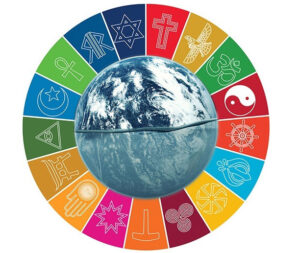
This website is curated by an Interfaith Minister and auspiced by Religions for Peace Australia who have been promoting various Interfaith Declarations on Climate Change – and the Environment – since 2012. Time has brought many faith based organisations together to respond to the needs of human flourishing, and the needs of the Earth our Mother. Here, we give an overview of the tasks this website will seek to fulfil.
Welcome!
Climate Change negotiations have come a long way since the formation of the United Nations Framework Convention on Climate Change in 1992. We have seen the Kyoto Protocol aimed at reducing greenhouse gas emissions. In 2010, we saw nations adopt the Cancun Agreements along with the creation of the Green Climate of the Technology Mechanism.
We have seen the adoption of the Warsaw international Mechanism as a mechanism to address climate loss and damage. There was the Lima Call for Climate Action, which consolidated the goal of pursuing climate ambition and had many elements of the Paris Agreement. In 2015 there was the adoption of the 2030 Agenda for Sustainable Development, the SDG’s. Then, in 2015, countries adopt the Paris Agreement.
The 17 Sustainable Development Goals (SDGs) are an urgent call for action by all countries – developed and developing – in a global partnership. They recognise that ending poverty and other deprivations must go hand-in-hand with strategies that improve health and education, reduce inequality, and spur economic growth – all while tackling climate change and working to preserve our oceans and forests.
There are 37 million churches in the world with 34,000 (Christian) denominations. The current number of mosques in the world is around 4 million. There are 20,000 synagogues and countless temples of the Eastern religions.
The world’s religions have stirred to take up the cause of climate change and inform their adherents and practitioners of what our Earth needs to survive and have a tomorrow that is a foundation for human flourishing. We trace developments of the Interfaith and Multifaith Declarations on Climate Change and the take-up of messaging for care of the Earth by the world’s religions.
Our values are our guides to action. Values are our codes of internal conduct, the principles guide our lives and our decisions. Our values are first parlayed to us by our parents, and these are developed, expanded, tested in experience. Other people impress values upon us, such as those values given to us by our childhood friends, our teachers, the wider community. Our moral values can often come from our culture and faith systems. We will look to the application of values – human values in particular – to climate change.
The Paris Agreement is an agreement within the United Nations Framework Convention on Climate Change. It planned to reduce greenhouse gases. It also looked at ways countries could change to deal with problems caused by climate change, and have countries promise to spend money to make sure this would happen. The agreement was signed in Paris in 2016, by 197 countries.


